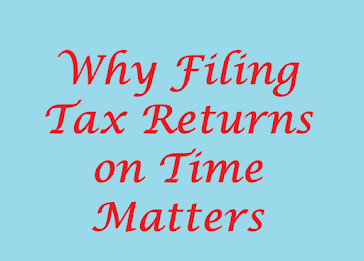Filing Returns Late? You Might Regret It Later
A Candid Office Conversation
It was a buzzing Monday morning at S & Co., a
mid-sized chartered accountancy firm known for its client-first approach and
practical financial advice. The team had just wrapped up a meeting with the
owner, Srini Sir, a respected practitioner with a calm presence and
decades of insight.
As the staff returned to their desks with notes and action
points, Jagruti, a seasoned senior with over 15 years of experience,
settled down with her second cup of chai. Her desk was always a magnet for
questions - especially from juniors.
Sure enough, Sadhana, the newest recruit at the firm,
shyly walked over.
“Ma’am, can I ask you something?” she said, a little unsure.
Jagruti looked up with a reassuring smile. “Of course,
Sadhana. Pull up a chair.”
Pooja, a semi-senior with around five
years of solid experience, overheard them and rolled her chair closer. “Looks
like it’s tax talk time!” she joked.
Sadhana chuckled nervously. “I was going through the client
tracker and noticed a few regular clients still haven’t filed their returns. I
get that people forget, but honestly, what’s the big deal if someone delays
filing their tax return? Especially salaried people who don’t owe much?”
Jagruti leaned back, amused. “That’s a question every beginner
asks - and it’s a good one. But the answer is longer than you think.”
Pooja jumped in. “Most people think filing is a formality - something
to do only if there's a refund or if they’re asked. But that mindset can cost
them more than they realise.”
Jagruti nodded. “First off, there’s the late fee. If
your income exceeds the basic exemption limit, and you miss the deadline,
you’re staring at a penalty of ₹5,000. That’s not small change for many.”
Pooja added, “And you also lose the right to carry forward
certain losses - like business losses or capital losses. That can mess up
your future tax planning badly.”
Sadhana was listening intently. “So even if there's no tax
liability, filing late has consequences?”
“Absolutely,” said Jagruti. “Returns act as proof of income.
You’ll need them for home loans, visa applications, or even when investing in
certain financial instruments. No one asks for your Form 16 - they ask for your
ITR.”
Pooja nodded. “And don’t forget refunds. File late, and
you delay your own money coming back to you. Why let the government hold it for
longer than needed?”
Jagruti smiled. “And the stress! Clients who wait till the
last week suddenly discover Aadhaar mismatches, unreported incomes, or missing
bank interest. It turns into a scramble.”
Sadhana looked thoughtful. “So it’s not just about avoiding
penalties. It’s about financial discipline and creating a reliable profile.”
“Exactly,” said Jagruti. “Filing on time shows responsibility -
and in finance, your reputation matters.”
Pooja raised her cup, “Here’s to filing returns on time - and
keeping things simple for everyone.”
The content made available in this article is for general informational purposes only. While every effort has been made to ensure the accuracy and completeness of the content, it should not be considered as a substitute for professional consultation.

No comments:
Post a Comment